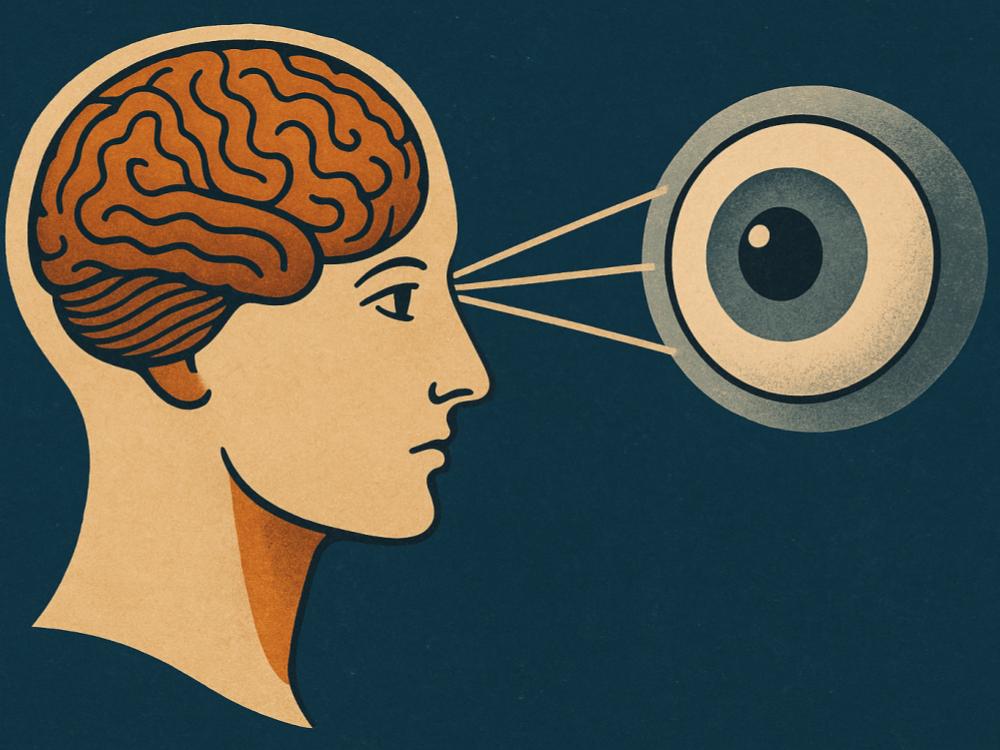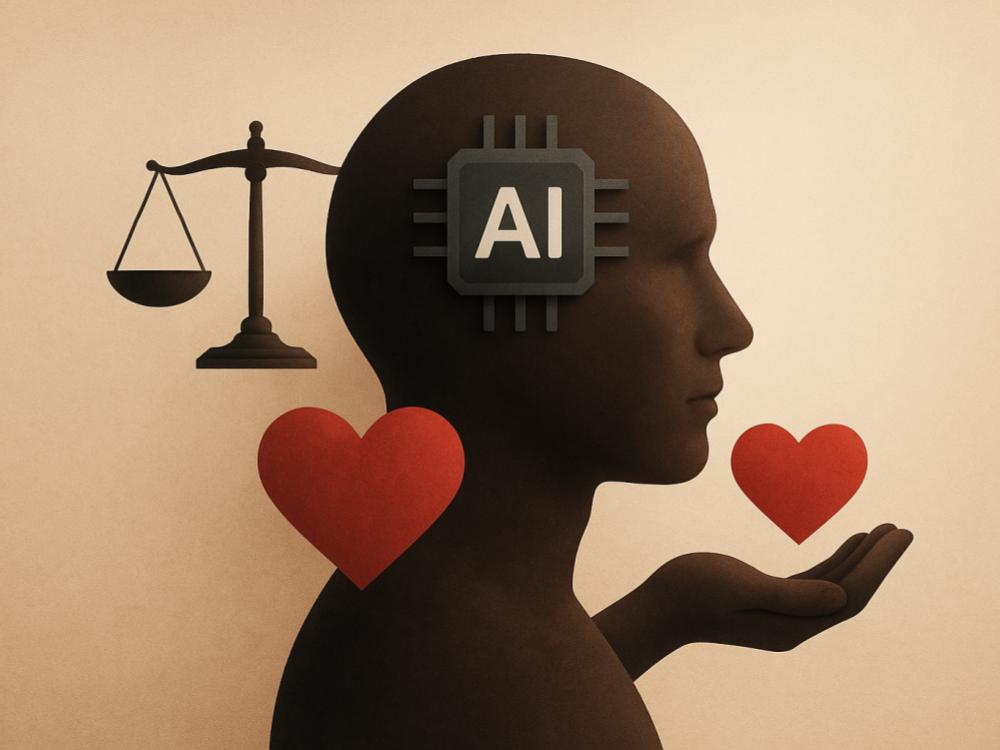Is Objectivity All in the Mind?
John Locke Institute Commended Essay

Introduction
To ask whether objectivity is "all in the mind," begin with the word itself. According to the Oxford English Dictionary, objective means not being steered by feeling or opinion when we consider and present facts. That sounds clean and reliable, a window with no fingerprints. Say that clean water is safe to drink and it seems straightforward.
Then the light shifts. A person who is dangerously overhydrated may be harmed by more water. The same sentence that looked firm now depends on the body in question, the conditions, the amount. Context does not destroy the claim, but it reveals the frame around it, and the frame matters.
Writers like Thomas Kuhn and Paul Feyerabend remind us that observation is never bare. According to their view, what we call facts arrive through human frameworks, through languages and cultures, through instruments and training that teach us how to see. If that is right, then we should ask whether any statement can ever step entirely outside interpretation. What follows explores whether objectivity stands on its own or whether it lives inside our minds.
Scientific Objectivity: Going Beyond the Surface
Return to the water example. If a simple scientific sentence can bend under context, then objectivity in science might be less like a stone and more like a well-built bridge. Science is cumulative; every new plank rests on older supports. Consider the claim that the Earth orbits the Sun. Today it reads as an objective fact, but it arrived through the Copernican turn, the careful undoing of a Ptolemaic picture, and it made sense because evidence was read through a new lens, one shaped by optics, physics, and mathematics that were themselves built on prior assumptions.
Push farther back and those prior theories sit on even older ideas. According to philosophers like Julian Reiss and Jan Sprenger, at the base you find commitments that science uses rather than proves, such as the expectation that nature behaves consistently or that corrected perception can track what is there. If every justification leans on earlier ground, what anchors the first footing. How do we check the frame that supports the rest.
This is the old problem of infinite regress, as Ajay Verghese describes it: you cannot justify every assumption with another assumption without end. Some conclude that full objectivity is out of reach because we cannot step outside our own scaffolding to confirm its absolute truth. If so, perhaps scientific objectivity is our best approximation, shaped by theory and language and perspective, strong enough for the work but never free of the hands that built it.
In that sense the question runs deeper than context. It asks whether any scientific claim can be entirely empty of interpretation, or whether the human viewpoint always tints the glass.
Theory-Ladenness: A Philosophical Framework
To explain how we see, philosophers speak of theory-ladenness. According to this idea, we do not need to be fully aware of our frameworks for those frameworks to guide our vision. Minds carry patterns for sorting the world. We used them when early people named plants and animals for use, and we use them when modern labs parse quantum results. Early skywatchers drew constellations to make the heavens legible. The shapes were not objective groupings in the stars, but they made a readable sky, which is how understanding begins. As Christopher Smeenk and others in cosmology note, the maps improve, yet the urge to pattern remains.
The value here is not to declare neutrality impossible and walk away. It is to admit that objectivity may not mean pure detachment. It may mean acknowledging the lens, testing it in public, and refining it through criticism. If our thinking has always been theory-laden, and if what we call objectivity often means disciplined work within those lenses, then it is tempting to say that objectivity lives in the mind.
The Self-Refutation Contradiction
That conclusion feels neat, but it carries a trap. If we claim that objectivity is all in the mind, we are making a universal claim about reality. We have produced an objective sentence that denies objective standing. The position eats itself.
The same problem shadows simple relativism. Say that all truths are relative and you have spoken a sentence that tries to hold for everyone. If it only holds for some, it fails as a universal claim. If it holds for all, it smuggles in the very objectivity it rejects. The contradiction forces a pause. Our frameworks shape understanding, yes, but something about objectivity must resist a total collapse into perspective, or at least our language must respect the limits of denying it completely.
Resolving the Paradox: Epistemic and Ontological Objectivity
One clean way through is to separate two meanings that often blur. Epistemic objectivity concerns how we justify and verify knowledge. According to this use, a claim earns standing when independent observers can follow the method, repeat the steps, and agree on the outcome. Ontological objectivity concerns what exists on its own. Mountains, gravity, atoms, and microbes do not wait for a vote.
The paradox appears when those senses are fused. To say that objectivity is all in the mind is to speak about method as if method exhausted reality. To say that objectivity exists beyond the mind is to speak about reality while forgetting that access runs through procedures. The better balance is to keep both in view. Mind-independent truths can exist, while every approach to them remains perspectival and fallible.
Michela Massimi's perspectival realism captures this balance with a lens metaphor. Reality lies beyond the glass; our lenses make it visible and sometimes distort it. Stephen Hetherington's fallibilism reminds us that our best claims remain open to revision. Eleonora Montuschi's attention to intersubjective checks shows how communities use collaboration and criticism to reduce bias. Put together, the view says that objectivity is both outside us and shaped by us, a duet of world and method.
Practical Applications and Implications for Scientific Practice
This dual account is not only a philosophical repair. It lives in the work. A p-value reports probability under a model; interpretation depends on judgment. A Bayesian prior records belief before data updates it; the numbers speak, but someone must listen with a trained ear. Scientific conclusions become a blend of world and reading, of independent signal and human inference, and naming the blend makes the practice more honest.
Morality offers a parallel. Cultures differ in customs, yet people across traditions tend to prize fairness and resist cruelty. The subjective and the shared coexist. Something like objectivity appears in the convergence even as interpretation stays in play.
Technology makes the point visible. Instruments mediate access. Telescopes and microscopes carry us toward what the eye cannot reach, yet design, calibration, and limits shape what we see. The world stands. The lens matters.
In short, a divided notion of objectivity turns out to be how we already live. Reality persists beyond us. Understanding arrives through us. The balance helps scientists, ethicists, and engineers do their work without pretending to be disembodied.


